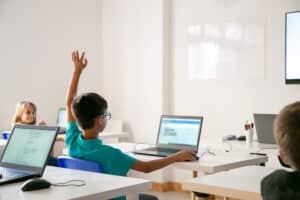Educational technology in private schools has revolutionised the teaching and learning process. The integration of digital tools facilitates access to a wide range of resources and encourages active student participation in their own learning. Through the use of innovative methodologies, it promotes personalised learning tailored to individual needs. This trend also fosters the development of essential skills for the future, preparing students for a constantly evolving world.
The Impact of Educational Technology on School Learning
The incorporation of educational technology within schools has transformed the way teaching and learning take place. Digital tools have become fundamental elements in facilitating the educational process.
The Role of Digital Tools in the Classroom
Digital tools play a vital role in the modern classroom. These technologies enable educators to implement more dynamic and effective teaching methods.
Access to digital resources and interactive materials
Through these tools, students gain access to an extensive variety of digital resources, including multimedia content, e-books, and interactive educational platforms that enrich the learning experience.
Use of computers and internet-connected devices
Computers and internet access allow students to conduct real-time research, offering opportunities for deeper, more personalised interaction with learning materials.
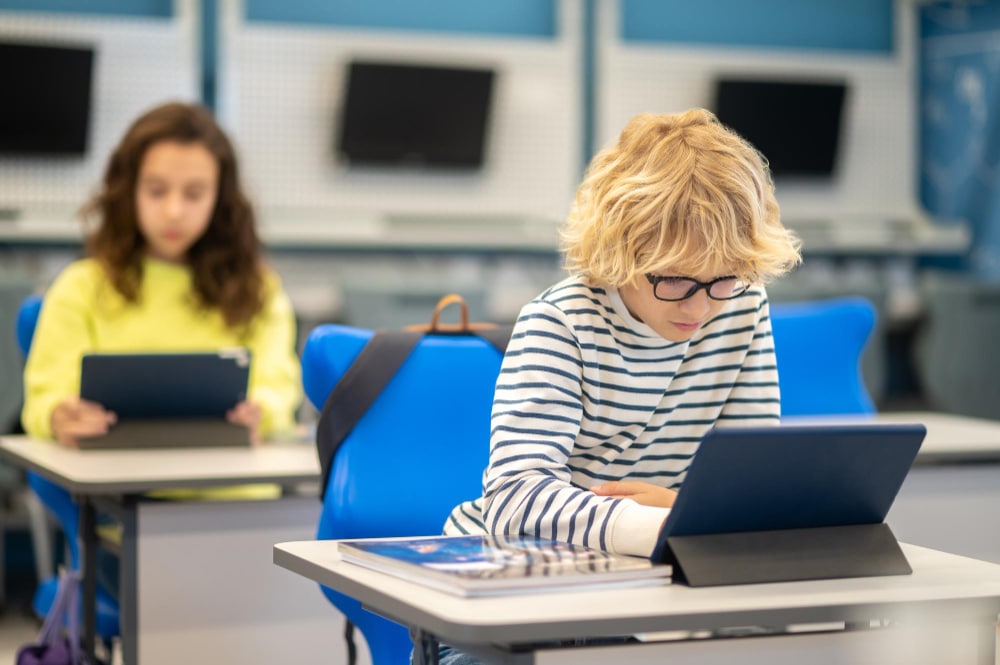
Development of Competences and Skills Among Students
New technologies foster the development of skills that are essential in the twenty-first century, transforming education into a more active and student-centred process.
Promoting autonomy and critical thinking:
Educational technology helps students become active participants in their own learning, encouraging autonomy and critical thinking as they reflect on the information they consume.
Problem-solving through educational technologies:
Through simulations, case studies, and projects, students learn to solve real-world problems, applying their knowledge in practical and meaningful ways.
Personalised Learning in Private Schools
Technology allows learning to be tailored to each student’s needs — a particularly valuable aspect in private education, where the goal is to offer an adapted and individualised approach.
For a research-grounded look at generative AI in schools, this World Bank EdTech webinar clarifies where technology genuinely boosts learning—and where it doesn’t.
https://www.youtube.com/embed/XjTjz34y4as?si=KxyFU7vBsLJAibR-
Teaching methodologies adapted to individual needs:
Flexible methodologies enable teachers to design learning experiences aligned with each student’s skills and interests.
Management of digital timetables and curricula:
The digitalisation of schedules and study plans improves the organisation and management of learning, allowing students greater control over their study time and methods, and enhancing their educational experience.
Integration of Technological Projects in Schools
The inclusion of technological projects has become a key part of curricular development. Such initiatives encourage interest in science, technology, and engineering, cultivating skills that are essential for the future.
Programming and robotics from early education:
Teaching programming and robotics from an early age has proven effective in capturing students’ attention and developing logical thinking in a fun and engaging way.
Robotics as both extracurricular and curricular activity:
Robotics workshops are offered as both extracurricular activities and as part of the school curriculum. These sessions teach fundamental concepts of electronics and programming through robot construction, sparking curiosity and enthusiasm for hands-on learning.
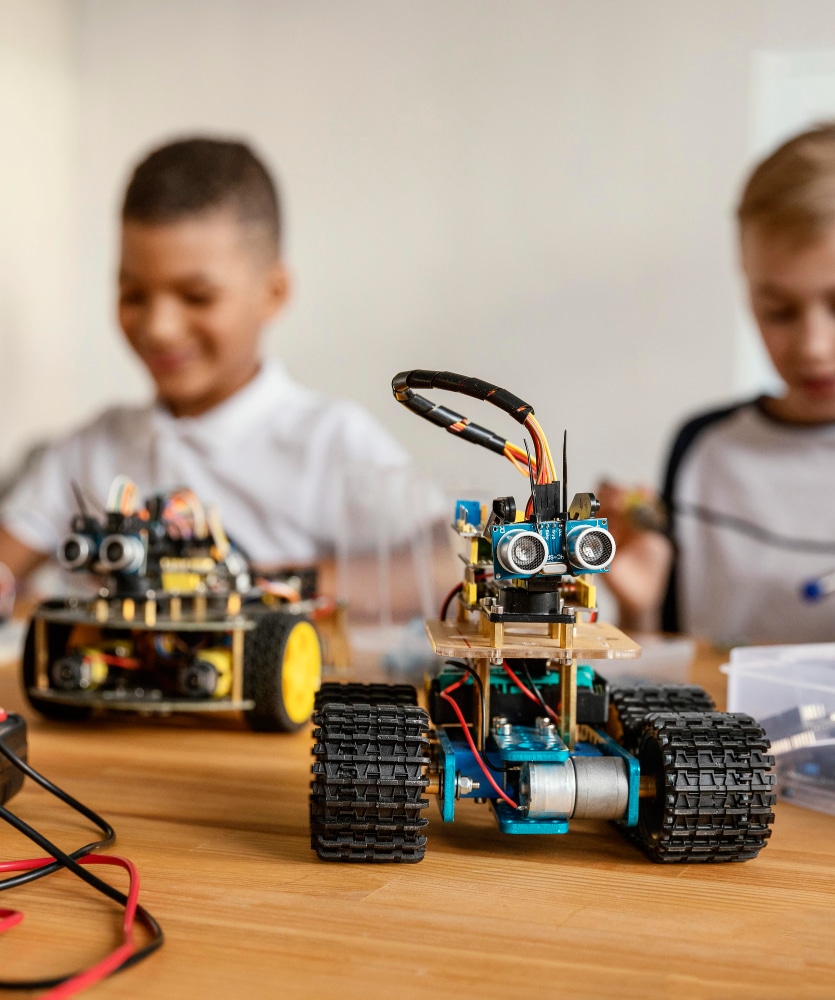
Encouraging STEAM pathways in primary and secondary education:
STEAM-related activities (Science, Technology, Engineering, Arts, and Mathematics) are designed to engage students through research and experimentation projects that promote active participation and inspire interest in scientific and technological careers.
From coding to robotics, students build and test solutions that matter—boosting problem-solving and teamwork. Explore our STEAM approach and apply now.
Educational Projects Based on Science, Technology, and Engineering
Integrating science, technology, and engineering within the classroom strengthens thematic and practical learning. Project-based activities allow students to apply what they learn in real-life situations.
Practical application in primary and secondary classrooms:
Practical projects develop essential skills such as analysis, research, and creativity. Students of all ages take part in experiments and developments that teach them to apply theoretical knowledge to everyday contexts.
Encouraging teamwork and communication among students:
Collaboration is fundamental to these projects. Working in groups helps students to express their ideas, listen to others, and improve their communication and social skills.
Use of Digital Platforms for Student Monitoring
Digital platforms play a key role in educational management. They are used to monitor students’ progress, optimise teaching processes, and facilitate personalised learning.
Operating systems and educational software in schools:
Schools adopt operating systems and educational software that enable students to complete tasks and projects more efficiently, making the educational experience smoother and more accessible.
Constant communication between teachers, students, and families:
These platforms also enable continuous communication between teachers, students, and parents, keeping families informed about progress and needs, and fostering a more supportive and collaborative environment.
Advantages of Educational Technology in Modern Private Schools
The implementation of educational technology brings numerous benefits to private schools, promoting more dynamic and accessible learning for all students.
Improved Access to Information and Knowledge
The availability of digital resources has radically transformed how students access information. This not only simplifies learning but also enriches the overall educational experience.
Digital books and updated multimedia resources:
Digital textbooks give students access to up-to-date and varied content, enhancing the learning process. Multimedia resources such as videos, infographics, and simulations are valuable tools for understanding complex concepts.

The Internet as a source of continuous learning:
The web offers unparalleled opportunities for research and study, allowing students to explore topics and perspectives independently and encouraging curiosity and self-directed learning.
Increased Student Participation and Motivation
An interactive learning environment generates greater interest and engagement from students.
This Edutopia piece translates cognitive science into practical strategies that pair perfectly with technology-rich, student-centered lessons.
https://www.youtube.com/embed/FiiFe7f6rEk?si=M88hf5KVhtXwAND_
Interactive and dynamic classroom activities:
Educational games and collaborative projects make learning enjoyable, enhancing concentration and motivation.
Play-based and project-based methodologies:
Playful, project-oriented methods make learning more engaging, encouraging exploration and experimentation while reinforcing practical and personal development.
Language Development and Reinforcement Through Technology
Technology also plays a crucial role in language learning, making teaching more effective and globally oriented.
Integrating language learning with digital tools:
Applications and communication platforms enable students to practise language skills interactively and enjoyably, increasing fluency and confidence.
Focus on international and bilingual education:
Private schools with an app international approach often introduce language learning from an early age, preparing students for a globalised future with valuable academic and professional skills.
A bilingual, globally minded curriculum paired with transparent, real-time learning dashboards for families. Discover our British programme and request more details.
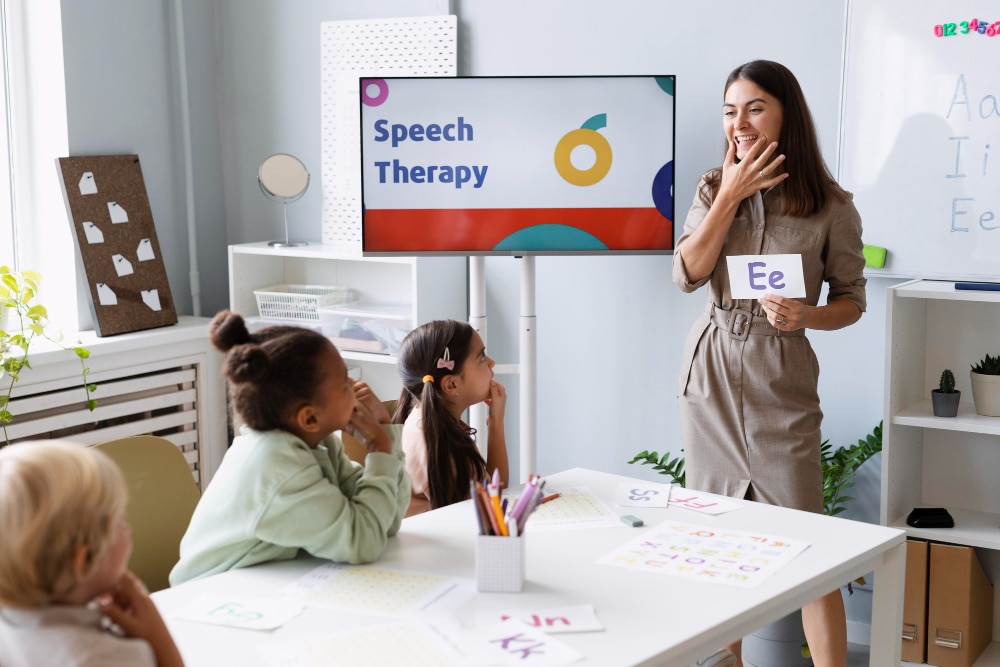
Challenges and Solutions in Technological Implementation
The introduction of technology in education presents both opportunities and challenges. Overcoming these obstacles is essential to ensure effective and beneficial integration.
Costs and Equal Access to Educational Technology
Implementing technology requires significant investment, encompassing not only the purchase of devices but also infrastructure and maintenance.
Funding programmes and student scholarships:
To reduce financial barriers, many institutions are developing funding programmes that provide students with access to technological tools. These initiatives help ensure that all pupils, regardless of their economic situation, can benefit from available resources.
Partnerships between schools and technology companies:
Strategic collaborations between schools and tech companies provide access to discounted equipment and software, as well as training for teachers and the wider school community, optimising the use of technology in classrooms.
Teacher Training and Continuous Professional Development
The success of technological integration largely depends on teachers’ training and confidence in using digital tools.
Training in new methodologies and digital resources:
Ongoing professional development is essential for educators to adapt to digital innovations. Programmes focused on current methodologies enable teachers to integrate technology effectively, improving both their competence and students’ learning experiences.
Creation of innovation classrooms and centres:
Establishing innovation spaces within schools allows teachers to experiment with new technologies and pedagogical approaches. These labs foster dynamic learning environments and encourage methodological diversity in teaching.
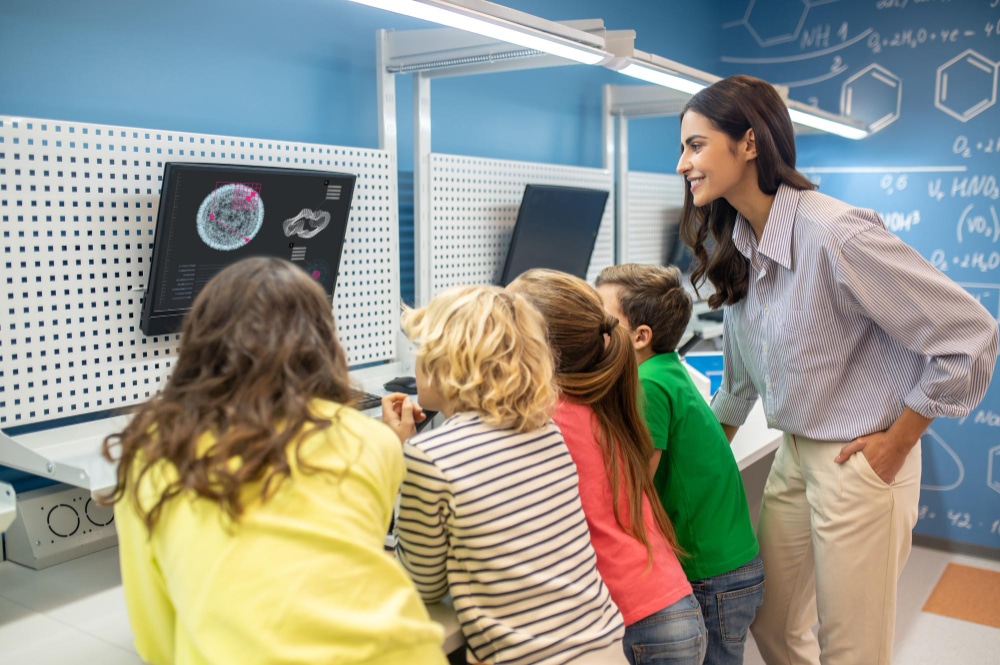
Innovative Pedagogical Models Supported by Technology
The adoption of innovative teaching models in today’s educational landscape is closely tied to the integration of technology in classrooms. These methods allow learning to be more flexible, interactive, and relevant to twenty-first-century demands.
UNESCO’s integrated vision helps school leaders and teachers align edtech adoption with pedagogy, ethics, and student well-being.
https://www.youtube.com/embed/_Tx_iwvkvBM?si=D0TOaru2NUOJYc6P
Modular and personalised learning in primary and secondary education:
Modular learning provides flexibility by structuring content into units that students can approach at their own pace and style.
At Benalmádena International College, edtech powers truly personalised pathways—so every student learns smarter, not harder. See our digital learning model in action—book a visit.
Flexible design of educational pathways:
Customised learning paths cater to diverse student needs, enabling them to choose complementary or specialised modules that enrich their academic and personal growth.
Assessment through digital platforms:
Digital platforms facilitate continuous assessment, allowing teachers to track progress and provide real-time feedback to improve learning outcomes.
Problem- and project-based learning:
This approach emphasises the application of theoretical knowledge to practical situations, developing key competencies through real-world challenges.
Integration of scientific and technological content:
Combining science and technology subjects creates a holistic educational approach. Laboratory practice and digital tools enable students to experiment and grasp complex ideas.
Fostering critical and creative thinking:
Working on projects gives students opportunities to question, analyse, and devise innovative solutions, stimulating curiosity and critical thinking — skills vital for personal and professional success.
Playful and Collaborative Education Through Digital Resources
Teaching methods that integrate play and collaboration create engaging and effective learning environments.
Interactive activities in connected classrooms:
Digital platforms promote active participation, increasing motivation and improving comprehension by making learning more appealing.
Fostering values and social skills in the digital environment:
Online collaboration through group work and shared projects provides opportunities to develop empathy, respect, and teamwork — essential values in today’s interconnected world.

The Present and Future of Technology in Private Education
The educational landscape is constantly evolving, particularly in private education. The integration of innovative technologies is reshaping both teaching and learning, preparing students for the future.
- Digital transformation of curricula and educational provision:
Schools are undergoing a process of digitalisation that affects their curricula directly. This not only involves content updates but also a complete rethinking of teaching methods. - Gradual incorporation of new technologies into daily life:
More schools are introducing digital tools into everyday classroom activities, creating interactive, adaptive learning environments where devices like tablets and laptops are commonplace. - Adapting to societal and labour market demands:
As the world of work evolves, schools must align their programmes with new requirements, focusing on developing relevant digital skills. - Educational institutions as centres of technological innovation:
Private schools are increasingly acting as innovation hubs, experimenting with new methodologies and technologies that benefit both students and the wider educational community. - Research and development projects in education:
Educational research is gaining importance. Institutions such as Benalmádena International College participate in projects aimed at improving pedagogy through technology, providing creative and effective solutions. - International and multicultural collaboration in learning:
The international character of many private schools encourages partnerships with institutions from different countries, promoting multicultural learning experiences that enrich students’ education. - Empowering students as protagonists of their own learning:
Modern educational philosophy seeks to empower learners, equipping them with tools to take ownership of their learning journey. This creates an environment where they can explore and construct knowledge independently. - Encouraging autonomy and knowledge management:
Educational programmes are designed to help students develop self-regulation and autonomy. Learner-centred methodologies foster independence and self-management — skills essential for future success. - Preparation for a global digital environment:
Educating students to be not only technologically competent but also critically aware of its use is vital. Schools focus on providing an education that prepares learners to navigate effectively within a digital and globalised world.


